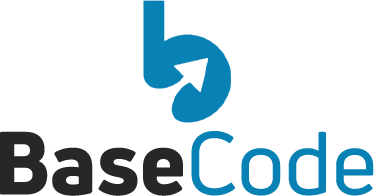For Nigerian consultants, tech agencies, finance professionals, and service-based businesses, choosing the right CRM can make or break your client relationship strategy. The CRM you select will affect how you manage leads, automate workflows, track deals, and maintain follow-ups.
Zoho CRM and Pipedrive are two popular options that often come up in conversations among growing businesses. If you’re trying to decide between these tools, this breakdown will help you figure out which one fits your professional service needs.
Overview of Both Platforms
Zoho CRM is part of the wider Zoho ecosystem, a cloud-based platform built to manage the complete customer journey from prospect to post-sale engagement. It is known for its flexibility, integrations, and affordability, especially for growing teams.
Pipedrive, in contrast, is designed specifically for sales teams that need a visual, easy-to-use CRM. It focuses on simplicity and pipeline tracking, with tools built around deal flow and opportunity management.
While both are strong contenders, your ideal choice depends on the complexity of your business, your automation needs, and how much you’re willing to invest.
Feature Comparison: Zoho CRM vs Pipedrive
Feature |
Zoho CRM |
Pipedrive |
| Automation | Advanced workflows, blueprints, lead scoring, macros | Basic workflow automation, simple triggers, and actions |
| Ease of Use | Moderate learning curve due to wide functionality | Extremely easy to use with an intuitive visual interface |
| Contact Management | Rich contact profiles with history, segmentation, AI assistance | Simplified contact view focused on pipeline movement |
| Email Marketing | Built-in campaigns (Zoho Campaigns), email templates, autoresponders | Requires third-party tools like Mailchimp or Outfunnel |
| Reporting | AI-powered analytics, dashboards, forecasts | Visual reports, sales activity tracking |
| Integrations | 800+ native integrations, including Zoho Books, Desk, Creator, etc. | 350+ integrations via marketplace, strong with tools like Gmail |
| Customisation | Highly customisable (fields, modules, views, buttons, functions) | Moderate customisation (pipelines, stages, deal fields) |
| Mobile App | Powerful app with offline mode and full CRM features | Lightweight mobile app focused on sales activity |
| Scalability | Suitable for growing businesses with multi-department needs | Best for small to medium teams focused purely on sales |
| Pricing (USD) | Starts at $14/user/month | Starts at $27/user/month |
People may also like this: Zoho CRM vs Salesforce: Why Nigerian Startups Are Switching
Ease of Use and Interface
Pipedrive is known for its simplicity and quick onboarding. Many service providers like the drag-and-drop interface that makes tracking deals feel effortless. It’s ideal for professionals who want a no-fuss CRM they can start using immediately.
Zoho CRM, while offering far more capabilities, does require more time to configure. The interface includes deeper settings and more tools, which can be overwhelming at first but incredibly powerful once properly set up.
If your business deals with long sales cycles, layered services, or recurring client engagements, Zoho CRM’s structure supports more strategic relationship management. But if your work involves a short sales cycle and you just need to track outreach and deals, Pipedrive is likely the easier fit.
Pricing for Nigerian Businesses
Pricing is often a deciding factor, especially for small and growing teams.
Zoho CRM’s standard plan costs around $14 per user per month, which is approximately ₦21,000 based on an exchange rate of ₦1,500 to the dollar.
Pipedrive’s comparable plan, the Advanced tier, costs $27 per user per month, or about ₦40,500.
While both platforms offer entry-level pricing, the standard tiers are where automation and integrations start to shine. For businesses in Nigeria looking to get the most value at an affordable rate, Zoho CRM is clearly more cost-effective.
Which One’s Best for You?
Choose Zoho CRM if:
-
Your team needs automation beyond just email reminders.
-
You work across departments like marketing, finance, and support and want a single connected system.
-
You plan to grow and scale your services and need a tool that grows with you.
-
You want to customise client journeys and dashboards to fit your workflow.
Choose Pipedrive if:
-
You’re a small team looking for a quick, visual sales tracker.
-
You want to avoid setup complexity and get started fast.
-
You mainly need to move deals through a pipeline and don’t require deep integrations.
People may also like this: Why Your CRM Migration to Zoho Fails And How to Fix It
Why Work with a Zoho Partner Like Basecode
Choosing a CRM is only the first step. How you implement it determines the impact on your business.
As a certified Zoho Partner, Basecode helps Nigerian professional service businesses set up, customise, and optimise Zoho CRM. We’ve worked with consultants, legal teams, tech support agencies, and finance experts to design CRMs that mirror how they work in real life.
Here’s what you get when you work with us:
-
Full setup and onboarding tailored to your processes
-
Local support from a team that understands the Nigerian business landscape
-
Seamless integration with other business tools
-
Team training so everyone uses the system effectively
Whether you’re starting fresh or switching from another CRM, we can help you make the transition smooth and profitable.
Final Thoughts
Both Zoho CRM and Pipedrive offer value in different ways. Pipedrive wins for speed and ease of use, while Zoho CRM shines in power, flexibility, and long-term affordability.
If you’re a professional service provider in Nigeria looking for a CRM that grows with you, Zoho CRM is the smarter investment. And with Basecode supporting your setup and optimisation, you can focus on delivering great service while your CRM handles the rest.




0 Comments